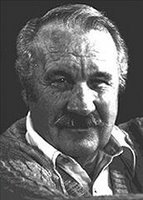
"This do in remembrance of Me."
— 1 Corinthians 11:24
It seems then, that Christians may forget Christ! There could be no need for this loving exhortation, if there were not a fearful supposition that our memories might prove treacherous. Nor is this a bare supposition: it is, alas! too well confirmed in our experience, not as a possibility, but as a lamentable fact. It appears almost impossible that those who have been redeemed by the blood of the dying Lamb, and loved with an everlasting love by the eternal Son of God, should forget that gracious Saviour; but, if startling to the ear, it is, alas! too apparent to the eye to allow us to deny the crime. Forget Him who never forgot us! Forget Him who poured His blood forth for our sins! Forget Him who loved us even to the death! Can it be possible? Yes, it is not only possible, but conscience confesses that it is too sadly a fault with all of us, that we suffer Him to be as a wayfaring man tarrying but for a night. He whom we should make the abiding tenant of our memories is but a visitor therein. The cross where one would think that memory would linger, and unmindfulness would be an unknown intruder, is desecrated by the feet of forgetfulness. Does not your conscience say that this is true? Do you not find yourselves forgetful of Jesus? Some creature steals away your heart, and you are unmindful of Him upon whom your affection ought to be set. Some earthly business engrosses your attention when you should fix your eye steadily upon the cross. It is the incessant turmoil of the world, the constant attraction of earthly things which takes away the soul from Christ. While memory too well preserves a poisonous weed, it suffereth the rose of Sharon to wither. Let us charge ourselves to bind a heavenly forget-me-not about our hearts for Jesus our Beloved, and, whatever else we let slip, let us hold fast to Him.
- C.H. Spurgeon






